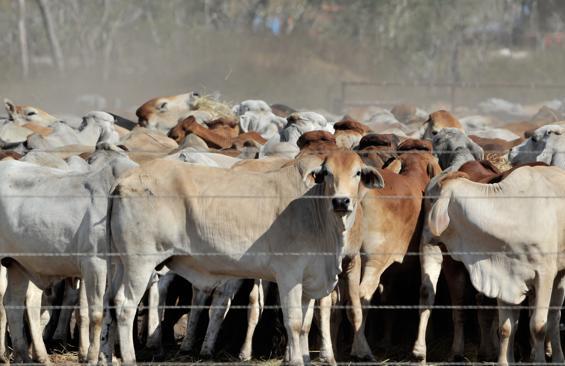 A livestock market in Northern Kenya is assisting residents dictate market prices and shielding them from middlemen with residents now reporting upto 50 percent more profit thanks to the growing demand.
A livestock market in Northern Kenya is assisting residents dictate market prices and shielding them from middlemen with residents now reporting upto 50 percent more profit thanks to the growing demand.
Established in 2005, the Lolkuniani livestock market has changed the lives of not only livestock keepers but also other traders living in this remote and neglected region. Travelling 150 to 500 kilometers from as far as Isiolo, Marsabit, Meru, Baragoi and Nairobi, livestock traders come to buy or sell. The market teems with thousands of people and, besides the livestock, makeshift stores and eateries sell all manner of commodities. But the main attraction is the thousands of livestock that are traded each week.
Set up as an initiative of the Samburu Integrated Development Programme (SIDEP) with the support of the Samburu County Council, Lolkuniani market is located on an open five acre piece of land donated by the Lolkuniani people. In the predominantly semi-arid Samburu East District, traditional livestock rearing provides the majority of household income and livelihood benefits.
With around 800 households and a population of about 4,000, basic services for the Lolkuniani community have been poor and, prior to the establishment of the market, livestock keepers generally sold their animals to middlemen, often trekking more than 100km to do so. Mortality en route was high, stock subject to theft, and many livestock keepers incurred local charges even before reaching the market. Ultimately, less than half the sale price was typically received by livestock producers.
Much of the revenue for local councils is provided by livestock, so the proposal to establish a market within Lolkuniani village was strongly supported by the Samburu County Council. And SIDEP supported discussions between the community, the council and other stakeholders to establish a market where revenues would be shared between the community and the council. A community livestock association, the Ngilai West Livestock Traders Marketing Association (NWLTMA) was formed and a link with the council formalised. Those selling and buying goats and sheep pay a fee of Sh60, whilst those with larger livestock like camels and cattle pay Sh200.
The vibrant market has given the community a new breath of life and helped strengthen the local economy. "Money raised is used to help the poor in the community. So far we have raised fees for 38 pupils in high school colleges and universities," said Letaare. His duty as a NWLTMA committee member is to ensure that all fees are paid and collected for each animal traded. Between Sh30,000-50,000 in revenue is collected each Thursday and shared between the community and the county council.
Before the market was formally established, the community did not receive any revenue. The market has also benefited the women and youth in the area. Women arrive early to buy goats for slaughter to prepare food for those attending the market while others sell general household wares. Young men find employment as loaders, cess collectors or by helping in the livestock sale yard.
Despite the benefits the market has brought, challenges remain. Prices of livestock have recently improved but the recent drought had taken its toll. "Prices for goats had fallen to as little as Sh500 and cattle fetched Sh2,000-4,000 during the drought owing to poor health of animals and the market almost came to a standstill," says Ibrahim Abdallah, SIDEP coordinator. "But with the return of the rains cows are fetching between Sh15,000-30,000.
Other challenges facing the community and the development of the market include a lack of basic amenities such water and sanitation facilities at the market, the poor road infrastructure, insecurity caused by cattle rustling of animals trekking to the market, disease outbreaks, and the mushrooming of bars in plots adjacent to the market. "This we fear may lead to farmers squandering their earnings on alcohol and we intend to talk to authorities to regulate this," explains Abdallah. To help improve security, NWLTMA hires the services of local police on market days and traders hire armed police reservists to escort cattle and camels on foot to distant destinations.
SIDEP continues to support the community in various ways, including by working with veterinary authorities to train Community Animal Health Workers and equip them with basic veterinary kits. SIDEP is sponsored by, CORDAID*, an international development organisation, who in partnership with FAO are supporting the construction of an improved market complete with water and toilets at a cost of Sh1.5 million. "We do not want to interfere with this area's fragile ecosystem," said Lemalasia, "so only the most basic structures will be put up on the proposed site."
The success of Lolkuniani is demonstrated by the visitors who have come to learn from this unique market model, and already councils in other districts are beginning to adopt a similar approach.
















Comments powered by CComment